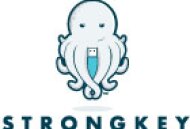UPDATE (11/11/2019): A high-level summary of key themes identified by the Blockchain Working Group members has been published. You can access the report here.
“Blockchain.” We can say with almost full certainty you’ve come across the term at least once in the last couple months. If you follow or work in investment banking or supply chain management, chances are you’ve heard of blockchain being referred to as the go-to technology to solve some of these industries’ biggest headaches. Maybe you came across it when you were reading about the whole buzz around cryptocurrencies. More recently, blockchain has been making headlines in the cybersecurity news, being commercialized as the "the next big thing" in the data security solutions market.
No matter how you’ve heard about it, the truth is blockchain is relatively new, and widely misunderstood—after all, it is pretty complex technology. That’s why California’s Government Operations Agency (GovOps) took the unique initiative of creating the California Blockchain Working Group.
To understand why individuals, businesses, and governments alike should care about it, we first need to be on the same page about some things.
What exactly is Blockchain?
“Blockchain is a decentralized, distributed, public ledger…” You’ve probably heard definitions like this before, leaving you with more questions than answers. To simplify it, we’ll try to illustrate it with an example.Three roommates decide to start keeping better track of every transaction they make with each other, anything from buying each other drinks, to paying for the month’s rent.
They decide to do so with a bound, hardcover notebook with numbered pages (the “block”) where every transaction made will be recorded including information like date, time, dollar amount, and people involved in the transaction. Each page can record many transactions, and the entire notebook can store several thousand transactions . Once the notebook is full and cannot store more information, a new one is used and the old one is “superglued” to the back of it (hence the “chain”).
The notebook, however, has special rules:
- It is decentralized: Everyone can access it from anywhere in the world. Although this isn’t possible with a real notebook (for obvious reasons), with a public blockchain it’s possible by connecting your computer to the blockchain network. You can think of the blockchain network as a social media feed, constantly showing every new transaction created by anybody that has chosen to participate on that network.
- It is distributed: Every transaction and its associated page number must be verified by any of the 3 roommates. They also cannot erase or edit anything written on it, because the information is also “magically” written in their personal notebook. With blockchain, every computer in the world that has part of the blockchain network automatically verifies and keeps track of the transactions.
- It is publicly available: Everyone can access it, at all times. In the case of public blockchain, using the Internet.
So what is California’s Blockchain Working Group?
Created by Assembly Bill 2658 in 2018, California’s Blockchain Working Group is a body composed of California lawmakers, educators, advocates for public good, IT leaders, and cybersecurity experts including StrongKey’s CTO and Forbes Security Council Member, Arshad Noor. They were tasked with researching and documenting blockchain’s potential uses, risks and benefits to state government and to business.The working group has people from different parts of the IT industry, as well as a well-balanced mix of skeptics, neutral, and people who are involved with the blockchain technology. They will be issuing a report with their results and conclusions to the Legislature by July 1, 2020.
Okay, why should I care?
Glad you asked. In case we didn’t make it obvious enough, blockchain’s capabilities have potential in a wide array of industries and areas of operations. In case you’re curious, here are a few areas of your daily lives that are most likely to be affected by the implementation of blockchain:- Food Industry: gone are the days of contaminated foods making it to grocery stores shelves and restaurant kitchens. Improved real-time control of foods’ supply chain should achieve this.
- Healthcare: with the potential to connect fragmented systems to generate insights and to better assess the value of care, blockchain could improve the efficiency and health outcome for patients.
- Multi-Party Trust: whether it is banking, equity and bond markets, manufacturing, voting, etc., multiple entities that have a stake in keeping track of transactions, can do so far more easily and transparently with an appropriately designed and constructed blockchain application. While this has always been possible with traditional technologies, blockchain makes some complex aspects of such multi-party trust applications much easier to manage.
Too good to be true? Perhaps…
Many problems can arise when talking about such groundbreaking technology and its applications. Companies are using the technology for internal purposes, but is it realistically implementable at bigger scales? How about for public institutions? Are blockchain’s benefits worth the millions (or billions?) of dollars of investment required for full implementation? And last, but most certainly not least, is it safe?This, among other important issues, is what California’s Blockchain Working Group is here to determine with the help of our CTO, Arshad Noor.





